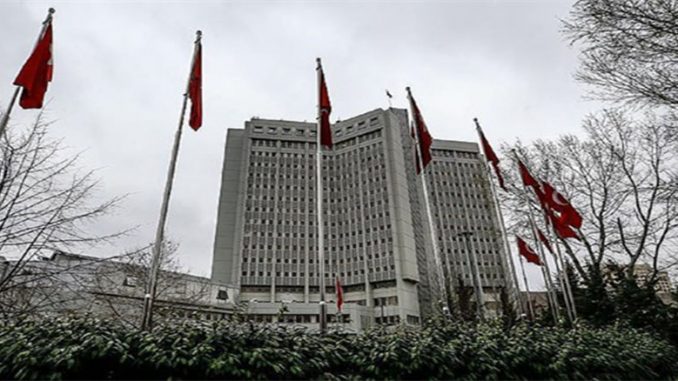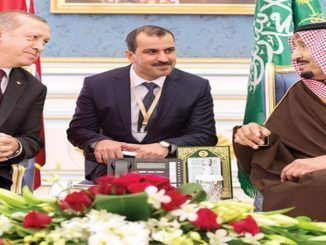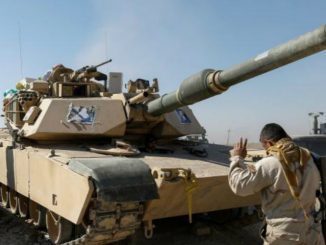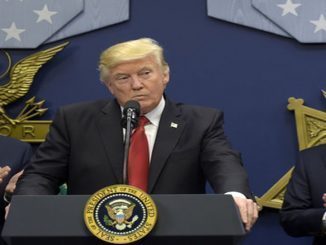
A referendum would be a mistake that would deteriorate the understanding of Iraq’s solidarity, the Turkish foreign ministry said
Turkey on Friday called a plan by Iraqi Kurds to hold a referendum on independence a “grave mistake”, saying that Iraq’s territorial integrity and political unity was a fundamental principle for Ankara.
“We think this will represent a grave mistake,” the foreign ministry said in a statement.
Iraq’s autonomous Kurdish region announced on Wednesday that it would hold a referendum on independence on Sept. 25, a move the central government in Baghdad is likely to strongly oppose.
“We shared our views and concerns about the independence referendum with the Iraqi Government and the leading members of the international community. In this framework, we emphasized that the referendum on independence will not be in the interest of Iraq and that the current period of critical developments in the region will face negative consequences which will increase instability,” said the statement.
“This principle lies in the region as a precondition for lasting stability, peace, security and prosperity. The most important issue for Iraq, which has seen major developments in the fight against Daesh, is the deep human, political, economic and social destruction caused by Daesh and the permanent stabilization by rebuilding the country in every sense.”
Germany also criticized the referendum plan, and described it as a one-sided step that would put the unity of Iraq in danger. The U.S. State Department said it was concerned that a non-binding referendum would distract from more urgent priorities such as the defeat of Daesh.
“The understanding of solidarity that emerged during the struggle with Daesh must continue in the post-Daesh period and all the issues that concern the future of the country are dealt with in international and constitutional legitimacy. Moreover, it is clear that a referendum to be held in such unusual conditions of the Iraqi people, including the controversial status of the provinces, will be far from reflecting the will of the people,” said the statement released by Turkey.
“Instead of defeating the integrity of Iraq, it is necessary to emphasize and strengthen the understanding of unity and solidarity of the country outlined in the Iraqi constitution based on the central principles and acting in the spirit of reconciliation, dialogue and inclusiveness between all the different elements that make up Iraq.”
Regional tension
Hemin Hawrami, a senior assistant to President Barzani, tweeted on Wednesday saying, “Referendum [on Sept. 25, 2017] is for Iraqi Kurdistan including Kirkuk, Khanqin, Sinjar & Makhmor. The question is: Do you want an independent Kurdistan?”
The referendum has been on the horizon for a long time. The announcement made by the Kurdistan Regional Government (KRG) that the semi-autonomous region will hold an independence referendum on Sept. 25, including a separate vote on several disputed areas, is highly likely to heat up the crisis-stricken region and draw ire from Ankara, experts say.
“The KRG has been run like an independent country for a while. The only thing that has represented the Iraqi central government was the flag in Barzani’s room,” said Çetiner Çetin, an Ankara-based journalist for the Türkiye daily which mainly focuses on developments in the region.
“The KRG was administrated as a federal state. The KRG and the Baghdad government operate on two separate soils with two different flags. Baghdad had no police officers, troops or public servants in KRG-held areas,” Çetin said.
The KRG’s possible independence has the potential to disturb the PKK to a great extent. Already calling the KDP terrorists, the PKK will find itself in a tough spot as it follows a policy of an independent state in northern Syria. Çetin contended that a war between the PKK and the KRG may be inevitable in the region in the wake of the independence referendum, which would be instigated by Iran.
“If the PKK successfully forms an independent state in northern Syria, Syrian Kurds and Iraqi Kurds would wage a war against one another,” he claimed.
Germany also criticized the referendum plan, and described it as a one-sided step that would put the unity of Iraq in danger. The U.S. State Department said it was concerned that a non-binding referendum would distract from more urgent priorities such as the defeat of Daesh.
“The understanding of solidarity that emerged during the struggle with Daesh must continue in the post-Daesh period and all the issues that concern the future of the country are dealt with in international and constitutional legitimacy. Moreover, it is clear that a referendum to be held in such unusual conditions of the Iraqi people, including the controversial status of the provinces, will be far from reflecting the will of the people,” said the statement released by Turkey.
“Instead of defeating the integrity of Iraq, it is necessary to emphasize and strengthen the understanding of unity and solidarity of the country outlined in the Iraqi constitution based on the central principles and acting in the spirit of reconciliation, dialogue and inclusiveness between all the different elements that make up Iraq.”



